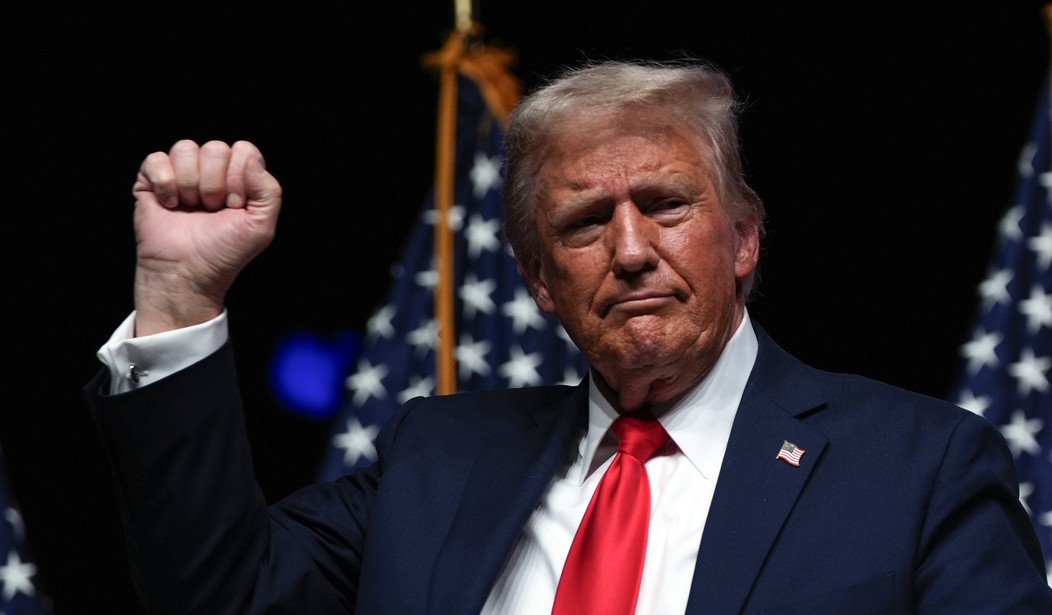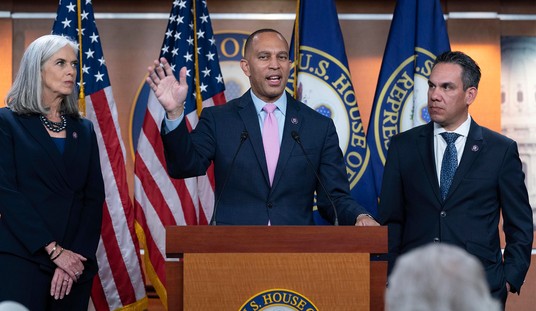Andrew Jackson was America’s seventh president and our nation’s original populist.
President-elect Donald Trump has somewhat revived interest in Andrew Jackson; Trump placed Jackson's portrait in a place of prominence in the Oval Office during his first term. More importantly, the incoming president has emulated some of Jackson's better qualities. Both men oppose(d) the country's elitist establishment in favor of "the common man."
While the Democrat Party has worked feverishly to label Trump as a champion of America's wealthy, and dishonestly asserted that Trump only favors "tax cuts for rich" and other such nonsense, Trump fully arrived in the 2024 presidential election as the champion of working-class Americans.
Before we move on from Andrew Jackson, here's how the White House presidential archive encapsulates our seventh president, in part:
Andrew Jackson was the seventh President of the United States from 1829 to 1837, seeking to act as the direct representative of the common man.
More nearly than any of his predecessors, Andrew Jackson was elected by popular vote; as President he sought to act as the direct representative of the common man. Decrying officeholders who seemed to enjoy life tenure, he believed Government duties could be “so plain and simple” that offices should rotate among deserving applicants.
Let's get back to the one word that connects Trump to Jackson: populism.
While "populism" means different things to different people — much like the left's definition of "inclusion" doesn't mean to the rest of us what it means to Democrats — here's how Merriam-Webster defines the term:
... a political philosophy or movement that represents or is claimed to represent the interests of ordinary people especially against the Establishment.
Populism usually arises from a general discontent. … People feel that things are out of control, socially and economically. … The idea that this is the fault of the meritocratic elite.
Rings true, doesn't it? Particularly as a description of 21st-century America and the growing opposition to Democrat Party rule. Hence, Donald Trump, like Andrew Jackson, overcame hardships and a presidential election loss to finally do something about it.

Trump's win was the culmination of a variety of factors, but the most obvious cause was his ability to present himself as the anti-politician in a country that hates politicians. First, he conquered GOP politicians in the primaries, and he has now won an election against the Democrat establishment for a second time.
While the Democrat Party continues to whine that Trump's decisive election win didn't give him a mandate, of course, it did. The incoming president not only won seven out of seven critical swing states; he also went 3-0 in the supposedly "impervious" blue-wall states.
Trump also won across party lines and demographical lines, including increasing his percentage of support among blue-collar workers, black voters, and within the Hispanic community.
While Kamala Harris, Joe Biden, and the left-wing media continually compared Trump to "Hitler" and labeled his supporters as "Nazis" and "garbage," the 47th president-to-be shrugged off the catastrophizing rhetoric and instead continued to focus on the needs and concerns of everyday Americans.
In a word, Trump clicked with Middle America better than any Republican presidential candidate in modern history, save for Ronald Reagan. Meanwhile, all that Harris, Biden, and the Democrat Party accomplished was pushing away tens of millions of voters, untold numbers of whom were Democrats.
Even The Hill recognized not only the significance of Trump's populist victory but also the potential of "conservative populism" post-Trump.
As big as Donald Trump’s victory was, his conservative populism’s political potential is bigger still.
While the primary post-election focus has been on where Trump over-performed, there are significant areas where he underperformed too.
And if Republicans could capture some of the votes Trump left on the table, they could significantly exceed Trump’s impressive 2024 victory margin in the future.
There is no reason conservative populism should not have at least an equal appeal to moderates. After all, Trump was able to tie Harris among voters who said abortion should be legal in most cases.
Precisely, and not to nitpick, but Harris tied Harris to voters who believe on-demand abortion should be legal in most cases, including those who believe that on-demand abortion of a healthy baby should be legal up to what would have been that moment of birth. Simply put, like most of us, Donald Trump rejects infanticide.
The Bottom Line
Unlike the populism of Andrew Jackson and why it appealed to enough voters to elect him president, populism in the age of Donald Trump is also about the notion that a majority of people are decent and kind — morally just, if you will — in contrast with those who are elitist and out of touch with society.














